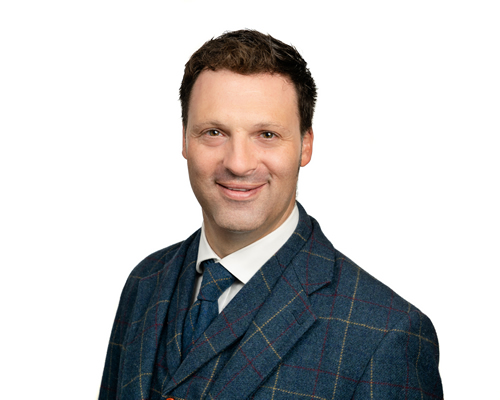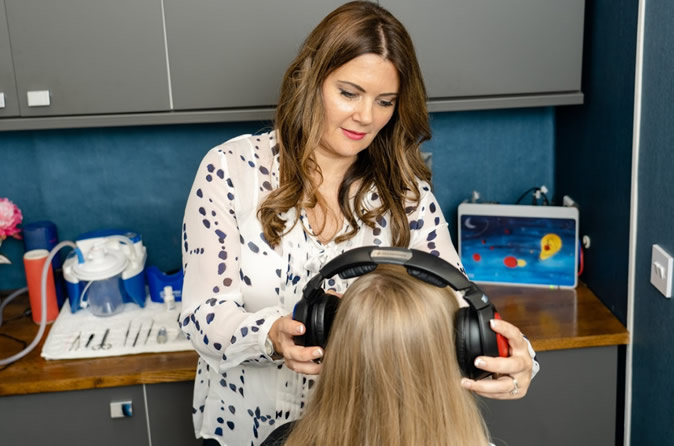A number of steps may be involved in a hearing test; we go through them here for you.
Hearing tests are routinely carried out on people of all ages to find out what their level of hearing is and to see if they have any difficulties with their hearing that might require treatment, or assistance, in the form of hearing aids.
It may be that as part of a general checkup that your doctor refers you or your children to an audiologist to have a hearing test, but you shouldn’t necessarily worry and think there’s a problem. The doctor may just want an ear specialist to confirm that the person’s hearing is fine and their ears are healthy.
If you’re having problems hearing certain sounds and are sure you don’t hear the way you used to, it’s highly advisable to have a hearing test as soon as possible. We don’t often realise it, but the structures in our ears that allow us to hear are incredibly delicate and can be negatively affected by a range of situations you find yourself in, some with lasting consequences.
Key Summary
- A hearing test helps audiologists diagnose the specific type and severity of hearing loss, enabling them to recommend the most suitable treatments or hearing aids tailored to individual needs.
- The audiologist conducts several tests, starting with tympanometry to check the middle ear’s acoustics, followed by a video examination of the ear canal. A word list test and an assessment of your ability to hear various sounds and tones at different frequencies are also typically performed.
- Addressing hearing issues through testing ensures better communication and daily interactions, reducing the risk of social isolation, cognitive decline, and other complications associated with untreated hearing loss.
What Happens During a Hearing Test?
Perhaps you’re having trouble with your hearing and are asking yourself, “What does a hearing test consist of?” Maybe, like many people, you’ve never had one and are wondering what’s involved.
Here’s what will normally happen during a hearing test:
- When you schedule a hearing test in London with an audiologist like Regain Hearing, you’ll first have a consultation to talk about your hearing and any difficulties you may be having with it.
- The audiologist will want to know any history you’ve had with your hearing and if a recent event has led to the current trouble you’re having.
- Then it’s on to the testing, and it will start with an ear-pressure test. This is called tympanometry, and it simply checks the acoustics of the middle ear, which is important for the way we hear. This test will pick up any infections or fluid in the ear that could be causing problems with your hearing, possibly including some pain.
- This is followed by a video examination of your ears, where a small camera is placed into the ear canal and the audiologist, and possibly you too, can get a clear look inside the ears, on a monitor, and see any inflammation or anything else that could be problematic.
- You may also have a word list test so that your audiologist in London can work out how you can improve your hearing of speech. And, of course, you will also have an actual test of your hearing, with various sounds and tones of different frequencies delivered to you, usually by using headphones.
What happens after a hearing test?
After conducting a hearing test, your audiologist will typically follow these steps:
- Review and Discuss Results: The audiologist will go over the results of the hearing test with you, explaining what the findings mean in terms of your hearing ability. They will discuss your hearing thresholds, any hearing loss detected, and how it might affect your daily life.
- Diagnose Hearing Issues: If hearing loss is detected, the audiologist will diagnose the type and severity of the loss (conductive, sensorineural, or mixed) and identify potential causes based on the test results.
- Recommendations and Next Steps:
- No Hearing Loss: If your hearing is within normal limits, the audiologist may recommend regular check-ups to monitor your hearing over time.
- Hearing Loss Detected: If there is hearing loss, the audiologist will recommend appropriate next steps, which may include:
- Hearing Aids: They may suggest hearing aids and provide information on the types, features, and options that would best suit your needs.
- Medical Referral: If the hearing loss appears to be related to a medical condition (such as an ear infection or a problem that may need surgery), they may refer you to an ENT (Ear, Nose, and Throat) specialist for further assessment and treatment.
- Hearing Rehabilitation: The audiologist might also discuss hearing rehabilitation options, such as communication strategies, assistive listening devices, or auditory training to improve your hearing experience.
- Follow-Up Appointments: The audiologist will often schedule follow-up appointments to monitor your progress, adjust hearing aids if needed, or provide ongoing support and counselling.
The aim is to ensure you receive the best care and support for your hearing health.
What do our audiologists say?
Today’s hearing test is the first step towards understanding your hearing health. It’s a simple process that gives us valuable insights into how your ears are working. My goal is to make you feel comfortable and informed throughout the test, so we can find the best solutions together if needed.” Lee Fletcher, (RHAD), (BSHAA), Ba(Hons)
What Can Affect Your Hearing?
In our noisy world, our ears are exposed to hazards all the time, and if the noise level is high enough, it’s possible you may lose some of your hearing for a short while or even permanently. In environments where there’s a high level of noise — such as a busy pub, a football match, out on the street, on a factory floor and many other loud places — hairs lining the inner ear can become damaged and won’t work the way they should.
These tiny hairs are responsible for transferring sound waves, which are a form of energy, further down the ear, where they’re processed before being sent on to the brain. Even something like loud engine sounds from mowing the lawn with a petrol mower can cause these hairs to flatten and not work correctly, resulting in temporary hearing loss. It’s the same with loud music, whether at a rock or pop concert or playing songs too loud via headphones or earbuds.
Hearing can also be affected by various infections, especially those caused by viruses, and conditions such as tinnitus, or ringing in the ears, can make it hard to hear properly, as can a build-up of earwax. Age is another factor in hearing loss, as the parts of the ear no longer work the way they did and decline with wear and tear. Trauma, such as a hit to the head, is another common reason for hearing loss. These require a hearing test to determine what a person’s hearing is currently and if they need help.
If you’re having trouble with your hearing, book a hearing loss treatment consultation with the experts at Regain Hearing today. We offer hearing tests in Croydon and London as well as Kent.




 Today’s hearing test is the first step towards understanding your hearing health. It’s a simple process that gives us valuable insights into how your ears are working. My goal is to make you feel comfortable and informed throughout the test, so we can find the best solutions together if needed.”
Today’s hearing test is the first step towards understanding your hearing health. It’s a simple process that gives us valuable insights into how your ears are working. My goal is to make you feel comfortable and informed throughout the test, so we can find the best solutions together if needed.” 



